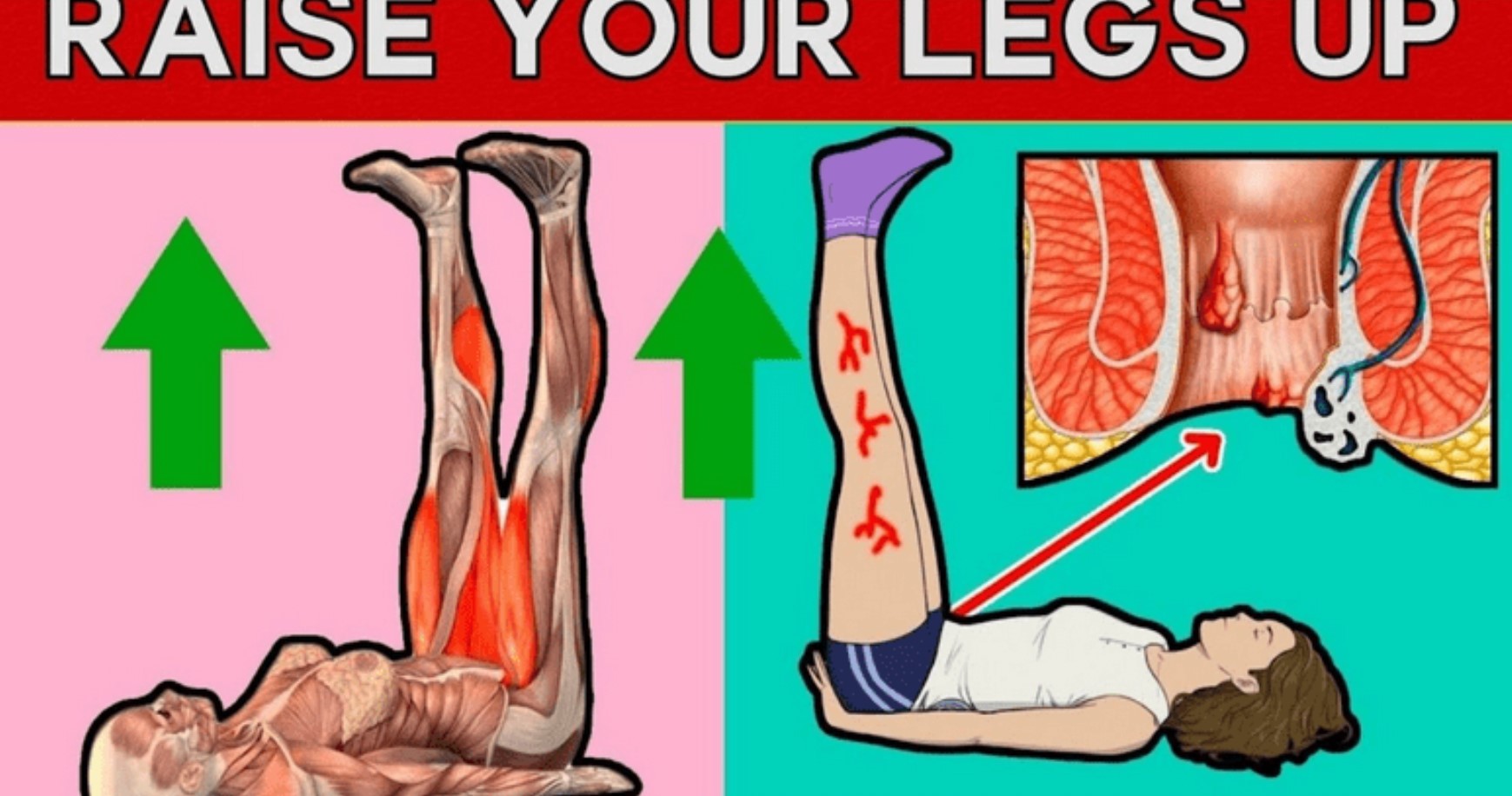Introduction
Sometimes the smallest actions can have a big impact on our health. Raising your legs against a wall is a soothing pose that anybody can perform at home, and it has several health benefits. Let’s find out why this easy activity could be an excellent addition to your daily routine and how it can help you enhance your overall well-being.
Why Raise Your Legs?
This position, often known as “Legs Up the Wall” (Viparita Karani in yoga), is more than just a relaxing pose. It is a gentle inversion that has several health benefits due to the reverse flow of gravity on the body. Elevating your legs reverses the normal direction of blood flow and lymphatic drainage, providing relief to multiple parts of the body. Here’s how doing this for a few minutes every day can help you get healthier…Click Here To Continue Reading>> …Click Here To Continue Reading>>
Health Benefits of Raising Your Legs
1. Improves Circulation and Reduces Swelling
One of the most obvious advantages of lifting your legs is better circulation. When you put your legs above your heart, gravity aids in the effective return of blood to your upper body. This can help reduce edema and fluid retention, especially in the lower legs, ankles, and feet. It’s a great treatment for folks who spend a lot of time on their feet or who have leg tiredness.
2. Relieves Back and Neck Pain
Raising your legs up the wall can help relieve back and neck pain. Raising your legs helps to decompress the spine, which can reduce tension and encourage relaxation. This posture also relieves strain on your lower back by allowing the muscles to relax, which may alleviate chronic pain caused by sitting or standing for extended periods.
3. Enhances Lymphatic Drainage and Detoxification
The lymphatic system is responsible for cleansing and eliminating waste items from the body. Elevating your legs promotes lymphatic drainage by directing lymph flow back toward the chest. This helps your body detoxify and strengthens your immune system, making this simple pose a natural method to improve your general health.
4. Reduces Anxiety and Promotes Relaxation
The “Legs Up the Wall” position is extremely soothing. It activates the parasympathetic nerve system, which controls the body’s relaxation and digestion activities. This helps to reduce tension and anxiety levels. By raising your legs for just 5-10 minutes per day, you can successfully overcome stress and achieve a serene state of mind.
5. Improves Digestion
This position can help to improve digestion by increasing blood flow to the digestive organs. Raising your legs allows the body to focus on digesting and promotes optimal gut function. It’s a simple and natural way to support your digestive system, reducing constipation and discomfort. READ FULL STORY HERE>>>CLICK HERE TO CONTINUE READING>>>
6. Boosts Energy Levels
Incorporating the “Legs Up the Wall” pose into your everyday routine might help you recover energy. After a hard day, this position might provide a fast energy boost by reducing the body’s tension. It also encourages better sleep, which leads to more energy throughout the day.
How to Do the “Legs Up the Wall” Pose
1. Find a Comfortable Space: Sit next to a wall, your legs stretched out in front of you.
2. Lie Back and Lift Your Legs: Slowly lie back and lift your legs up the wall, maintaining your hips as near to the wall as possible.
3. Relax and Breathe: Close your eyes and concentrate on your breath. Hold this position for 5-10 minutes, allowing your body to unwind and your muscles to relieve tension.
4. Repeat Daily: Incorporate this pose into your everyday routine to gain the benefits of better circulation, less tension, and more relaxation.
Conclusion
Raising your legs against the wall is a simple yet incredibly efficient way to boost your health and well-being. Whether you want to relieve physical pain, reduce stress, or enhance your energy, this simple yoga stance has several benefits that you can easily include in your everyday practice. Spend a few minutes each day practicing the “Legs Up the Wall” pose to reap the long-term benefits for your body and mind.




















